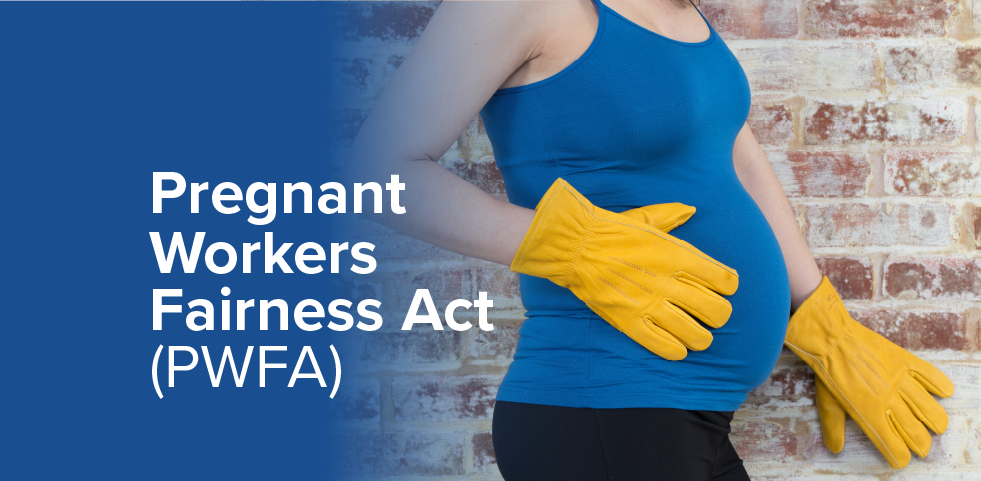According to the Department of Labor’s estimate, 85% of female workers in the United States will become pregnant at some point in their working years. Each year, 8% of women experience pregnancy-related complications. To effectively support a potentially significant percentage of their workforce, employers must address any gaps that exist in providing said support to those workers on the job.
An estimated 250,000 pregnant workers are denied accommodations related to their pregnancies each year. Until recently, no federal law required employers to provide reasonable workplace accommodations for pregnant workers to stay in their jobs. But soon, this will become a legal issue for employers.
The Pregnant Workers Fairness Act (PWFA), signed into law last December, takes effect June 27, 2023, and applies to all employers with 15 employees or more as defined by Title VII of the Civil Rights Act of 1964 and other state and federal government entities. According to the Equal Employment Opportunity Commission (EEOC), this new law requires employers to provide reasonable accommodations for a worker’s known limitations related to pregnancy, childbirth, or related medical conditions, unless the accommodation will cause the employer an undue hardship.
More than 30 states and municipalities nationwide currently have laws in place that provide accommodations to pregnant workers. The PWFA establishes the minimum standards that must be met, but state and municipal governments may offer additional protection.
Highlights of the Pregnant Workers Fairness Act
The EEOC will provide additional guidance prior to PWFA taking effect in June. Meanwhile, it is important to start learning about the requirements to be prepared.
The following are a few essential highlights to note:
-
- Limitations are defined as either physical or mental and do not need to meet the definition of disability as outlined in the Americans with Disability Act (ADA).
- Reasonable accommodations will be based on those defined in section 101 of the ADA and will require the use of an interactive process that is typically used to determine an appropriate reasonable accommodation.
- Employers cannot ask an employee to take leave rather than provide the accommodation.
- Employers will only be exempt from providing reasonable accommodations if they can prove it will pose an undue hardship to their business.
Key takeaways to note
It will be necessary for both employers and disability carriers to understand the PWFA and its implications. The risk of non-compliance by any party could be significant.
Under the ADA, either a disabled employee or the EEOC may bring an action against an employer if reasonable accommodations are not provided. In addition, several states have disability discrimination laws that authorize lawsuits by disabled employees or enforcement actions by state officials.
Brown & Brown Absence Services offers consultation to those seeking to secure reasonable accommodations. Our experienced vocational rehabilitation specialists are well-versed in accommodations requests and can help facilitate the interactive process, identify resources, and provide plans and support.




